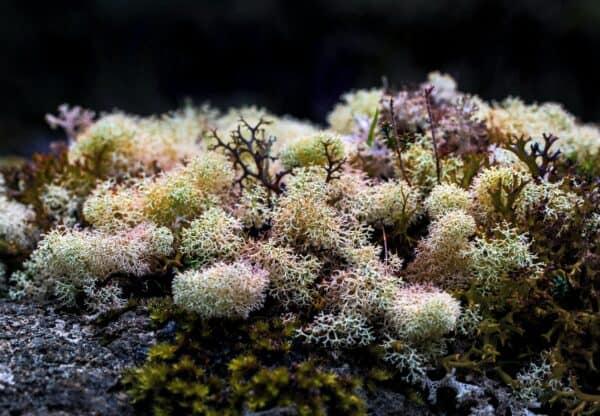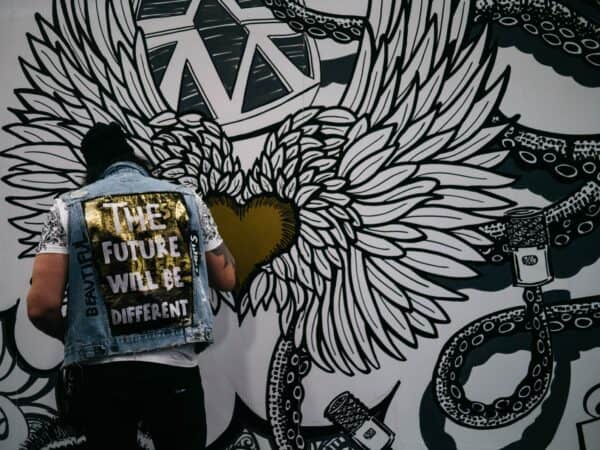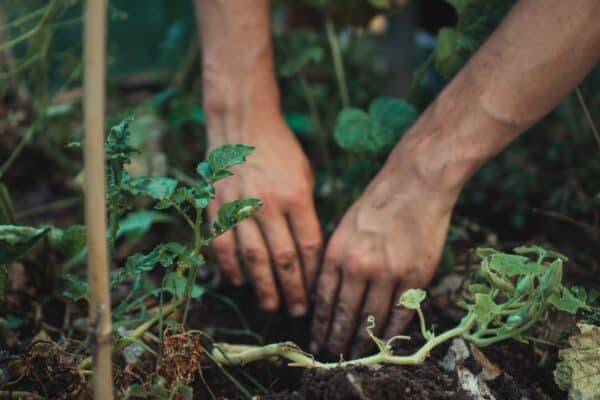THERE seems to be a trend to claim that there are no safe spaces.
It seems that we want to throw out the possibility of safety and we want to only talk about bravery.
I understand where people are coming from when they want to discard the possibility of safety, but from where I’m sitting, it all depends on how we define safety, and how willing we are to go beyond binary thinking.
For example: developing our emotional maturity does not necessarily feel comfortable, or ‘safe’ – in fact – if we are not experiencing growing pains, we are likely not ‘going there’ – to the sharp edges that we have previously sought to avoid or ignore. Equally, leaning into and talking about what hurts or feels awkward can be a place of comfort for some people with high emotional intelligence.
But discomfort and comfort are not the same as being safe – or not. We can be safe and deeply uncomfortable all at the same time.
And unsafe conditions can feel familiar and even comfortable, depending on the circumstances of our early life.
So, as someone who has dedicated my life to creating a variety of spaces for learning and growth, quite radically so for many years, I don’t agree.
It is entirely possible to create spaces that are anchored in safety because they are anchored around something that I describe as an ‘Agreement of Trust’. AGREEMENTS OF TRUST HAve THE POWER OF RELEASING THE EVOLUTIONARY POTENTIAL OF A COMMUNITY.
An Agreement of Trust is not the same as a set of
Rules (seek to control)
Guidelines (loose and can be avoided)
Good-will practise (good intentions that are not enough to create cultures of care and belonging)
Curtesy policy or (about politeness – not authenticity)
Manifesto statement (usually a beautiful collection of words that is wheeled out in front of funders or stakeholders but not lived and breathed in action)
Instead, an Agreement of Trust is a function of shared values, which in turn is anchored in a shared world view.
This world view and values are on an Agreement of Trust translated into behaviours, that are to be practised together, for the higher good of all.
Regeneration is in essence about returning to life, liberating ourselves from the death traps of hundreds of years of collective trauma of separation. So any regenerative community will likely want to have collective liberation as its guiding star.
Spaces that are conducive for learning, unlearning and growth are those where we can enter into what in learning theory is known as the zone of proximal development – conditions where we are neither too stretched or it feels too easy. It’s the optimal space – the optimal soil – in which we can grow.
An Agreement of Trust creates a kind of breathable membrane that allows the organism of the community to arrange itself loosely within those parameters and start to move nutrients around to ensure each part of the organism as a whole is thriving.
In human terms, an Agreement of Trust opens up for the possibility of letting our guard down and our minds and hearts to open. The possibility of seeing into our own hearts and the hearts of others a little deeper. It opens up for emotional intimacy – the birthplace of healing, liberation and wholeness.
But in order for everyone to be able to practise emotional intimacy and showing up as our whole selves, the TRUST part of the Agreement of Trust is essential.
Those that are marginalised intersectionally by our various systems of oppression, are used to hiding parts of themselves, compartmentalising, editing themselves, swallowing their words and emotions too. To them – you – the very mention of safety can feel like a provocation, a luxury granted to the privileged, the normative. A ‘safe space’ can be seen as one that keeps alive the status quo, in fear of eruptive fragility and being rejected.
And that is why an agreement of TRUST is like no other agreement.
Because of the word trust. You see, an essential part of what is known as the Anatomy of Trust (in the name of wholeness we might want to rename it an ecology of trust!) as described by people like John Gottman, Charles Feltman, and Brené Brown, is accountability.
Accountability is an essential and central part of TRUST. But in the co-dependent system of relating to each -other, we have learnt and been socialised into thinking that accountability is the same as judgement and possibility of being cast out.
This fear is intrinsic to the story of separation.
We have learnt that accountability is the same as conditional belonging. Conditional love.
Which means that the notion of accountability will make some people feel deeply unsafe in spaces that require us to show up fully and meet ourselves in the mirrors of our siblings.
But this is where our Agreement of Trust disrupts and instead seeks to create a new kind of safety needed in order for us to not run away, but to stay and breathe and be brave, and safe all at the same time.
Safe in the knowing – the trust – that loving accountability in the name of collective liberation, is about opportunities for learning and growth, instead of judgement and shame.
Safe in the knowing that through the eyes of our Agreement, we are all seen as imperfect and enough, AND that there is room for growth, all at the same time.
Brave, in that we are saying yes to looking ourselves in the eyes whilst being lovingly witnessed and held by others in our discomfort.
Safe and brave because an Agreement of Trust invites us to show up in a 200% relationship with ourselves, and our siblings.
Not only is it an invitation – but an activation – into a deeper levels of self-leadership, for the whole. and self-leadership, by its very nature, enables us to hold ourselves – enabling us to move through the world with a greater sense of inner safety.
These are in theory life affirming conditions that have the potential to birth new worlds. Within and without. Life-affirming conditions that make us both resilient, connected and purposeful.
IF we truly commit to them. Agree to them. No-one exempt.
It requires that we can TRUST that we will each show up with a commitment to integrity and re-alignment with life.
That we will hold that accountability is a love language necessary for the regenerative age.
And in the process of living, breathing our sacred agreement, we will remember our imperfectly beautiful humanity as each layer of armour falls off, one safe and brave moment at a time, and we come to know the meaning of belonging to each other once more.









3 thoughts on “The life-giving power of an Agreement of Trust”
I HAVE FOUND THIS ARTICLE TRULY INSIGHTFUL, THANK YOU FOR SHARING EMILY
Very intriguing – your take on what I “already know” but have felt difficult to grab, express and explain (including to myself): That safe space is not enough and that brave space is not enough – it is something more and different we need. Radical Trust is a concept I reflect on – connected to this. I will come back to this post as I keep on reflecting on the topic. Big thanks. /Mette
Thanks for sharing. You are doing a great job in Nurturing changemakers for the whole world.
Comments are closed.